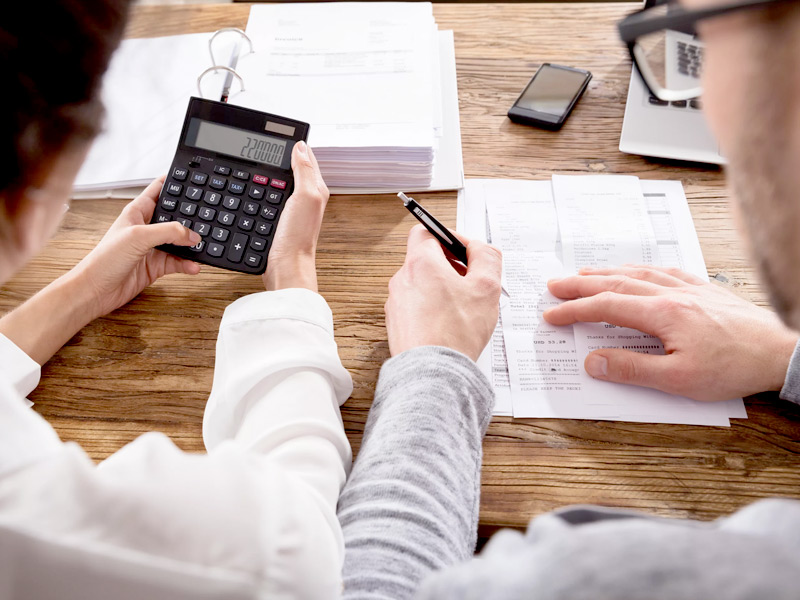Table of content
- What is the process of conveyance?
- What does a conveyancing solicitor do?
- How much should I expect to pay for conveyancing?
- Will conveyancing costs change in 2023?
- What is included in the conveyancing fee?
- How conveyancing works in QLD

What is the process of conveyance?
Think of conveyancing as the process which allows an owner to sell a property to another person. The meaning of Conveyancing in law is the legal or statutory process of transferring the title in that property from the owner to a buyer.
Conveyancing generally starts with the owner and the buyer entering into a contract which sets out the terms on which the property is to be sold. The process ends when there is a settlement at which time the title is transferred for the agreed purchase price.
Conveyancing essentially allows a buyer to pay for a property knowing fully what the buyer is paying for.
For example, a buyer would first want to know if a property is subject to any restrictions on use.
Likewise, conveyancing allows a seller to transfer the title to a property to a buyer knowing that it will not only receive the purchase price but that the seller will not be exposed to claims from a buyer after settlement.
A conveyancing lawyer is best equipped to ensure this will occur.
A conveyancing lawyer is a fully qualified solicitor who is usually engaged after the agent has found a buyer for the owner’s property.
If you are interested in more detailed steps when transferring ownership, we recommend this guide.

What does a conveyancing solicitor do?
So what are the conveyancing services typically carried out by a conveyancing lawyer? There are many because both the buyer and the seller have numerous obligations under a contract that need to be performed before key critical dates. Missing a key date could cost the seller a sale or could cost the buyer a deposit and the opportunity to buy the property.
When acting for a buyer, a conveyancing lawyer will typically:
- Carry out searches on the property and the property’s title – check for easements, type of title, heritage restrictions, etc;
- Prepare, arrange execution, and lodge legal documents – e.g. transfer documentation;
- Calculate the adjustment of rates and taxes;
- Attend to the Settlement of the property – act on your behalf, advise when the property is settled, liaise with your bank or financial institution when final payments are being made;
- Monitor critical dates; and
- Represent the buyer’s interests with a seller or their agent.
When acting for the seller, a conveyancing lawyer will typically:
- Arrange execution of legal documents;
- Attend to the Settlement of the property – act on your behalf, advise when the property is settled, liaise with your bank or financial institution when final payments are being made;
- Monitor critical dates; and
- Represent the Seller in dealings with the buyer – e.g. request to extend dates, questions about searches, etc.
So are there any other services undertaken by a conveyancing lawyer other than acting on a transfer from a seller to a buyer? Yes, it is recommended that you engage a conveyancer lawyer whenever you are:
- subdividing land;
- updating a title (eg. registering a death); and
- registering, changing, or removing an easement.

How much should I expect to pay for conveyancing?
The cost of conveyancing will depend on whether you are buying or selling a property. When you buy a property, the conveyancing lawyer will need to carry out searches to protect the buyer’s interests. The costs of these searches not only depend on the number of searches to be carried out but also depend on the Council area. A buyer should usually allow between $350 and $550 for the cost of searches.
In terms of the fees to be paid to the conveyancing lawyer, the fees for selling a house typically start from $540 and will depend on the particulars of the sale. The fees for buying a house typically start from $890 and again will depend on the particulars of the sale. You can calculate the cost in more detail using our Instant Quote.
It is not uncommon for there to be other costs payable by a buyer. The buyer will not only need to pay for the cost of searches but may also need to pay for pest and building inspection reports. The buyer may also need to pay fees to secure finance from a bank.
Here are some links to help you understand the process better:
Where there is a real estate agent involved, the seller would typically be charged a commission on the sale that may be a certain percentage of the sale price. If a buyer retained the services of a buyer’s agent, the buyer would usually pay a fee to the buyer’s agent.
The buyer would also need to pay government charges on the transfer including registration fees and duty. These charges vary depending on the amount of the purchase price.

Will conveyancing costs change in 2023?
In general, 2022 didn’t show a significant decrease in the cost of housing with a significant decrease in the number of buyers and this means that many participants in the property market will want to compensate for this difference by increasing the fee. According to our study at GM Law, most conveyancing market participants increased their prices in advance.
However, the market always reacts to such changes. According to CoreLogic, in January 2023 there was a record -8.40% drop in property prices. The decline is attributed to the fact that current interest rates have risen significantly compared to 2022, which has created a turbulent year for Australian property.
GM Law company has always been open about the conveyancing costs and you can calculate the conveyance fee in our calculator. Also, you can find the approximate prices there.

What is included in the conveyancing fee?
Here are the points that determine the conveyancing fee:
- Verification of Identity
- GST
- Land Tax – Clearance Search
- Property searches (Department of Transport and Main Roads)
- Body Corporate Information
Certificate & Insurance Certificate (Estimate only) - Common Property Title
- Community Title Scheme Search Statement
- Title Search
- Plan Image
This list is especially important to understand that some conveyancers indicate a pretty low commission still the end price is still high, but it’s not the “conveyancer’s fee”, but the costs of governments, etc. Anyway, in the end, it’s you who will pay the money.

How conveyancing works in QLD
In general, the process is the same as described above, but there is an important nuance in the difference between a conveyancer and a solicitor. We also understand that you may still have a lot of more specific questions. Like:
- Is it possible to contact the conveyancer online
- Do conveyancers check contracts
- Are there any nuances for the first-home buyers
- How long does conveyancing take in Brisbane, etc.
If you are interested in more information about Conveyancing in Brisbane, this long read may be useful to you. We hope this helps answer some of your questions.
Also, you can always call us at 1300 185 636 and describe the nuances of your particular case, it’s free.


